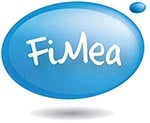IFSTTAR (Institut français des Sciences et Technologies des Transports, de l’Aménagement et des Réseaux) and its Swedish counterparts (Chalmers University, Linköping University, VTI) are organizing the first Smart Cities & Mobility workshop, aimed at bringing together economic and academic players in the field who wish to develop their relations – and of course their projects – with their Swedish and French counterparts.
Dates: June 11 & 12, 2019 on the ESIEE premises in Marne la Vallée
This workshop is organized under the aegis of the Swedish Embassy in France and the French Embassy in Sweden, as well as with the representatives of the H2020 Transport Program Committee, and our supervisory bodies at MTES and MESRI.
As you’ll see from the program, this workshop features several “matchmaking” moments for the partners present, as well as a presentation of financing possibilities for the projects presented during the 2-day workshop.
If you’re interested, don’t hesitate to sign up. The workshop is free, but registration is compulsory.
“Pitching your project” sessionAre you working in the field of Smart cities and mobility, in France or in Sweden?Do you have a new project, a start-up, a prototype, … or just an idea?Would you like to find partners, sponsors or just share with the community?–> The“Pitch your project” session is just made for you!You will have the opportunity to meet academics, researchers, innovation stakeholders, private partners and to present them your project in 5 minutes.If you want to contribute to the “pitching session”, please click here, no later than 30th April 2019.
* Face to Face meetingsThe French-Swedish workshop on Smart Cities and Mobility will also be a great opportunity for face to face meetings.You will have a unique chance to meet your partners and exchange with them in a dedicated meeting room.The list of partners attending the workshop will be available soon in order to prepare appointments.
* Visits and demosSense-City is a unique facility located on Paris-Descartes campus (walking distance from workshop venue).It is a climate chamber that can cover two 400m² areas. On each of these areas, a portion of territory is built on, called a Mini-City, equipped with many sensors to:
- study the performance of facilities and urban materials
- monitor the city of tomorrow by sending appropriate information
- study air, water and soil pollution
You will have the opportunity to visit this facility and discuss with projects leaders and engineers working with this facility.

